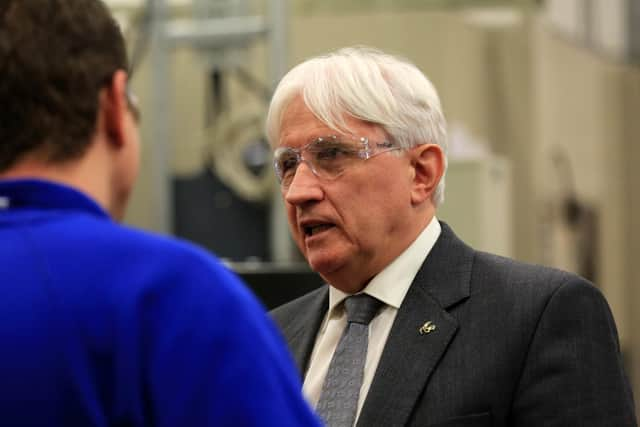Lack of grid-level battery storage holding back green investment: Chris Rea
This is holding back business investment in roof-top solar panels that will take the pressure off the National Grid, increase the supply of green energy for everyone, and help combat the current energy crisis.
Contrary to Government policy the distribution of green energy UK-wide continues to hit roadblocks because of a system-wide failure to invest fast enough in grid-level battery storage.
Why is this important?
Advertisement
Hide AdAdvertisement
Hide Ad

Peak electricity demand could be reduced by an estimated 17.5 per cent by investing £21 billion in a 60GW battery array, which can provide 10GWh of energy for a six hour period, saving almost 15 million tonnes of CO2 emissions annually.
In comparison the new Hinkley C nuclear power station, which is currently under construction in Somerset and is due to open in 2027 with a projected lifetime of 60 years, will generate seven per cent of the UK’s electricity at a cost of £26 billion.
However, while there has been a substantial Government commitment to nuclear energy, it remains unclear who needs to make the necessary investment in battery storage.
Given the peaks and troughs of solar and wind energy, this is vital to unleash the full power of the often-promised ‘green revolution’.
Advertisement
Hide AdAdvertisement
Hide AdThe Betterworld campaign, which started in Yorkshire but includes a number of global enterprises, encourages environmentally-friendly investment by industry.
It has been advocating roof-top solar panels and back-up battery storage as part of the solution for the climate crisis.
However Betterworld members report that in large parts of the UK there is a restriction on connecting green energy to the grid.
In many cases the restrictions apply until 2030.
My own company, AESSEAL, for example, is not allowed to export excess solar energy to the grid in Derby.
Advertisement
Hide AdAdvertisement
Hide AdThe problem is that due to the dispersed nature of electricity system with OFGEN as the Regulator and District Network Operators (DNOs) operating as part of the Energy Networks Association along with the National Grid and a series of independent generation companies, investment in grid-level battery storage continues to be hit or miss.
Small businesses can and would deploy their capital more readily if they could connect a battery array to the grid and benefit financially from the ability to buy and store energy at a sufficiently less cost than the price it could be sold for at peak times.
The current situation is a serious disincentive for this kind of investment and ultimately that is hurting the planet.
I have written to Members of Parliament from all parties to highlight the importance of this issue and the need to act.
Advertisement
Hide AdAdvertisement
Hide AdIsn’t it about time that we had joined up thinking as a society?
It is simple.
We either want solar energy or we don’t want solar energy.
Chris Rea CBE is managing director of AES Engineering Ltd, based in Rotherham